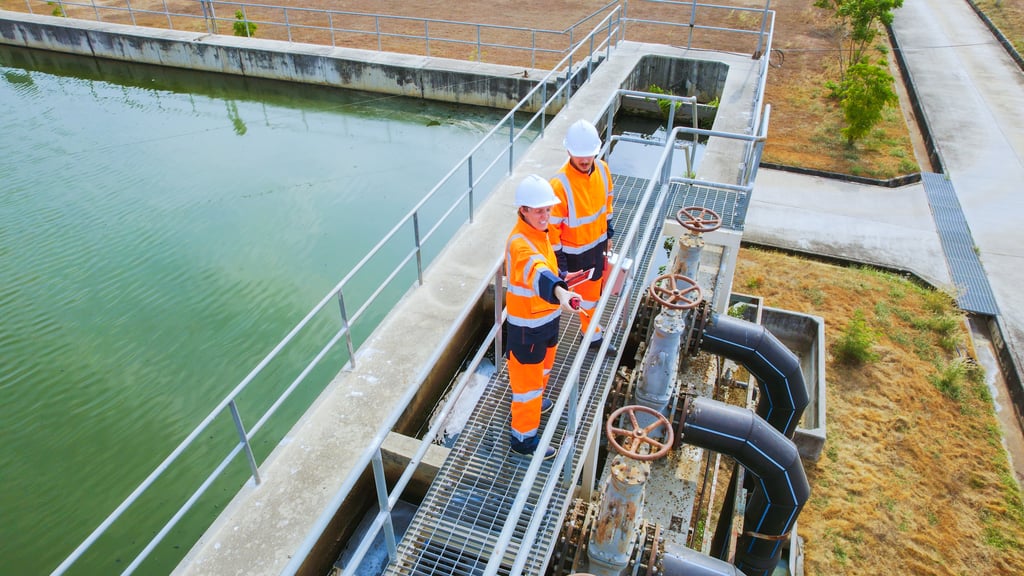In June we hosted a “Senior safety management seminar” in Jinan, China on 26th April 2018. discussed the safety of China’s chemical industry and how we can manage safety across the industry. We discuss the importance of improving safety management.
In June, LRQA along with the State Emergency Management Ministry of China, the former China State Administration of Work Safety (SAWS) hosted a “Senior safety management seminar” in Jinan, China on 26th April 2018. The seminar, which gathered over 60 senior safety managers from across the industry, discussed the safety of China’s chemical industry and how we can manage safety across the industry. Helen Yang, Business promotion director, LRQA discusses the importance of improving safety management in China.
Incidents in recent years across China, including a chemical warehouse in Tianjin erupting in an explosive blaze in August 2015, killing 155 people, have prompted further discussion and action on the way risk and safety is managed across the industry. Incidents at chemical plants can affect not just monetary and reputational damage but also people and the environment therefore they must be a priority. A report in 2016 found that From January to August, there were 232 people killed across the chemical industries — an average of nearly one a day. In 2017 the industry in China saw approx. 150 major fires or explosions.
This has become a high priority from China government to fix, and in recent years the government has started paying much more attention to health and safety, implementing safer working procedures and looking at safer ways of working.
Advanced Process Safety Frameworks
Two key themes that are emerging and were discussed at our Safety =Management seminar were process safety and safer working practices, with considerable focus given to the framework for advanced process safety management and implementation of the integrated safety and production system. Process safety is a blend of engineering and management skills focused on preventing catastrophic accidents and near misses, particularly structural collapse, explosions, fires and toxic releases associated with loss of containment of energy or dangerous substances such as chemicals and petroleum products.But how does this translate into a practical application in the Chinese chemical industry?
Various detail method and tools are needed to ensure implementation of the safety management system, these include; Integrity Management for Barriers and Performance Monitoring, SIS/SIL process facilities safety practise in industry, and how high quality Hazard and Operability Study (HAZOP) analysis improves the industry risk management by providing a deeper understanding of risk drivers and how to manage these, by identifying hazards and reducing risk, improved design solutions and minimising risk expenditures associated with unplanned events.
Lessons learned
How we as an industry learn from previous accidents is key: Avoiding the Longford trap based on the accident and event management. The Esso Longford gas explosion was a catastrophic industrial accident which occurred at the Esso natural gas plant at Longford in the Australian state of Victoria's Gippsland region in 1998. A loss of hydrocarbon containment from a vessel resulted in explosions and fire, killing two employees and injuring eight others. Many key site positions were vacant on the day of the incident with individuals either covering them on a temporary basis (i.e. in an acting position) or in addition to their usual responsibilities. Andrew Hopkins, refences in his book ‘Lessons from Longford’ that fundamental shortcomings at Longford were in the implementation of the Operations Integrity Management System (OIMS) guidelines and the inadequate knowledge of supervisors and operators because of inappropriate training, lack of proper operating procedures, and failure to conduct a HAZOP for the vessel. According to Hopkins, this resulted in inappropriate and insufficient actions being taken. He also notes that a contributing factor was the reduction of supervision at Longford, in part due to the transfer of engineers to Melbourne, which reduced both the amount and quality of supervision available on site. This incident sadly reinforces that effective Process Safety Management (PSM) requires the necessary people, procedures and equipment to be in place at all times.
Research has demonstrated that industry incidents are almost always related to incorrect or inappropriate workforce behaviors. To achieve successful process safety management three main areas must be included, these include addressing your safety culture, an engaged workforce and mapping safety critical tasks. Improving process safety through auditing and safety indicator monitoring is key to ensuring these safer working environments, it is the important tools and method that maintain a good system and this implementation was discussed heavily. Further information on this and how to avoid failing can be found in our recent process safety white paper here.
LRQA Risk Management Expertise
We’re working together with clients and authorities in the Chinese Chemical Industry to contribute to a safer China. Our risk management services enhance your current internal effectiveness in support of your continuous improvement commitment by identifying hazards and reducing risk.
For further information on our process safety expertise and implementing a safety culture change register to attend out webinar, or contact one of the team.







